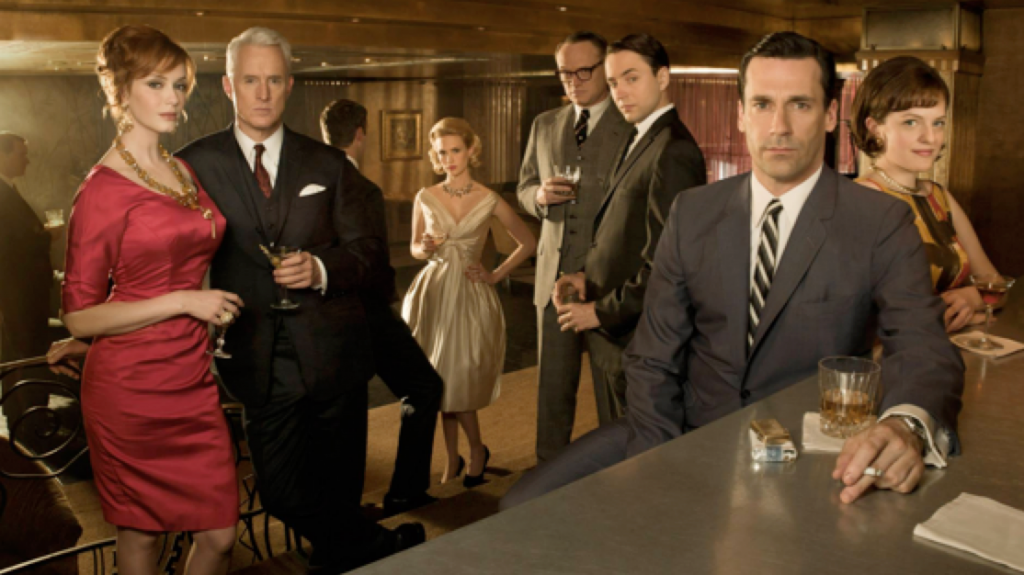TV Cultures – Blog Post #1
“The Grown Ups” from the AMC series Mad Men centres around societies reaction to the assassination of JFK after his fatal shooting on Friday November 22, 1963. The episode makes a key observation about how television has been used as “cultural technology” witnessing the event unfolding through the television – with the event forcing changes in relationships, activities and lives of the characters.
What is most interesting to myself about this episode is the connection between the behaviours of people here, in 1963, and in 2001 during the September 11 attacks. Creator of Mad Men, Matthew Weiner, stated that there was an “intentional association” with the events of 9/11 and particularly the “reaction to the attacks”. The further you get into the episode – the more this makes sense and becomes more noticeable in the actions of characters. The heightened sense of security, temporary closures of businesses, and a resounding sense of grief among all people run parallel to that of 9/11. Another issue that is raised about television in this episode is the concept of TV being used as “cultural technology”. TV had not always been a broadcast medium for events such as the JFK assassination – it existed purely as an extension of radio. However over time, people turned to television as their news source, thus its role within society was negotiated and television became a primary news and entertainment source.
Television families such as in Mad Men, reflects either a utopian or dystopian spectatorship. A utopian spectatorship regards television as a “catalyst for renewed domestic views” and also that it can “restore faith in family togetherness” and become the heart of a home. Much of this runs parallel to the original promotion of television where the TV was seen to be the “electronic hearth” and brought a sense of unity into households. Looking at the other perspective – the dystopian spectatorship, which is reflected in this episode of Mad Men. An aspect to this dystopia is the cultural authority, which is something that is still relevant in society today. An example of this, not necessarily from Mad Men is where a father, or patriarchal head of most families is the one allowed to operate the TV remote.
Also a part of dystopian spectatorship is the idea that television has “divisive effects” on families, which lead to it being a disruptive and often isolating part of our homes. This is evident in the scene where Don returns home to his family watching the coverage of the JFK assassination and his children are shown glued to the television. One way to look at this is that it was intentional and television was used as a method of keeping children quiet. If this is the case, I suppose there isn’t too much difference between this and a parent handing a child an iPad or iPhone for them to play on, in order to keep them quiet.
Overall this episode of Mad Men is an excellent example of the way television has gained cultural authority established a place in the family home, but has also shown the negative, dystopian ways in which television can divide homes.
